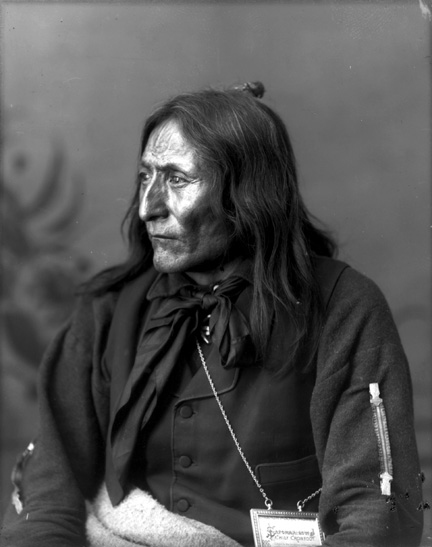The relationship of the Blackfoot with the rest of the populace of North America varies. They have hostilities, like almost all other Native Americans, against the white settlers invading their lands. They did not like the fact that the settlers barged in and started to control them. Aside from these hostilities, the Blackfoot did not have many conflicts with the surrounding groups. When the Great Plains Indian Wars came around, the Blackfoot, for the most part, stayed away from fighting against or scouting for the United States army.
Several times the Blackfoot have been confronted by other tribes that were fighting in the war, asking them to join their side and fight. However the Blackfoot refused to join in the war and sent them off. Even after they came back and asked again the Blackfoot would refuse to join in on war. Eventually one of the most influential Blackfoot chiefs, Crowfoot, was able to end hostilities between two nations. Even when asked to join in fighting in the Northwest Rebellion the Blackfoot still remained out of the fighting.
However, a big problem occurred for the Blackfoot in the mid-1800's when their food supply began to plummet due to the European-American hunters taking too many of their bison as well as moving too far into their territory. The buffalo was the main food source of the Blackfoot and when they began to dwindle the United States government signed a treaty to give them $20,000 a year if they would move onto a reservation. The Blackfoot were forced to rely on the supplies given to them but most of them never even arrived or were spoiled when they got them. This forced the Blackfoot to make raids on white settlements out of desperation for food.
References:
http://en.wikipedia.org/wiki/Blackfoot_Confederacy#The_Indian_Wars

No comments:
Post a Comment